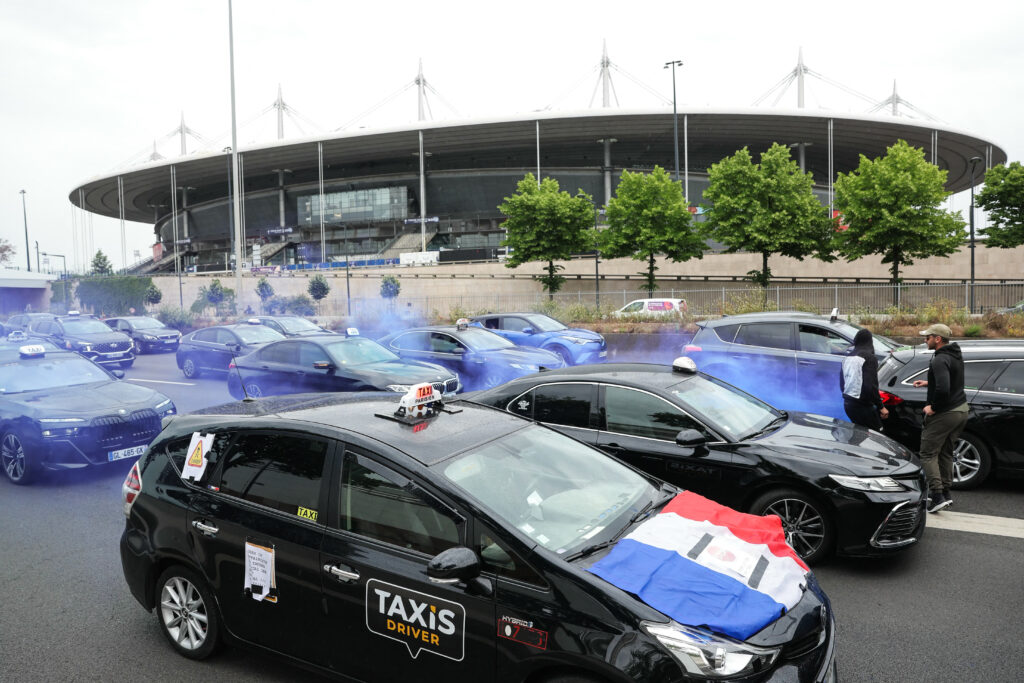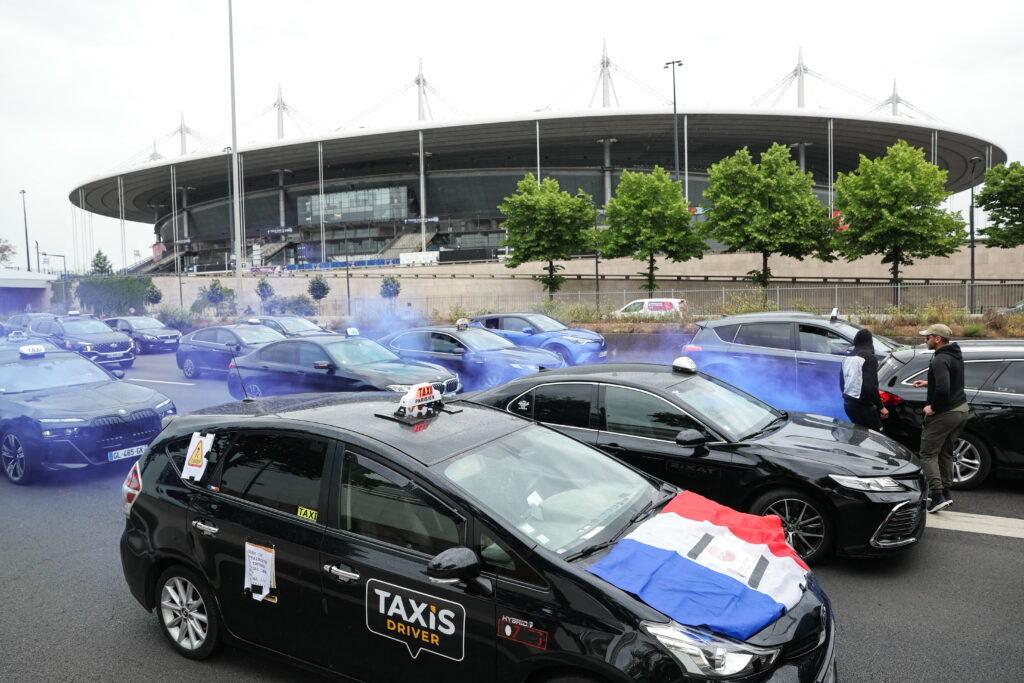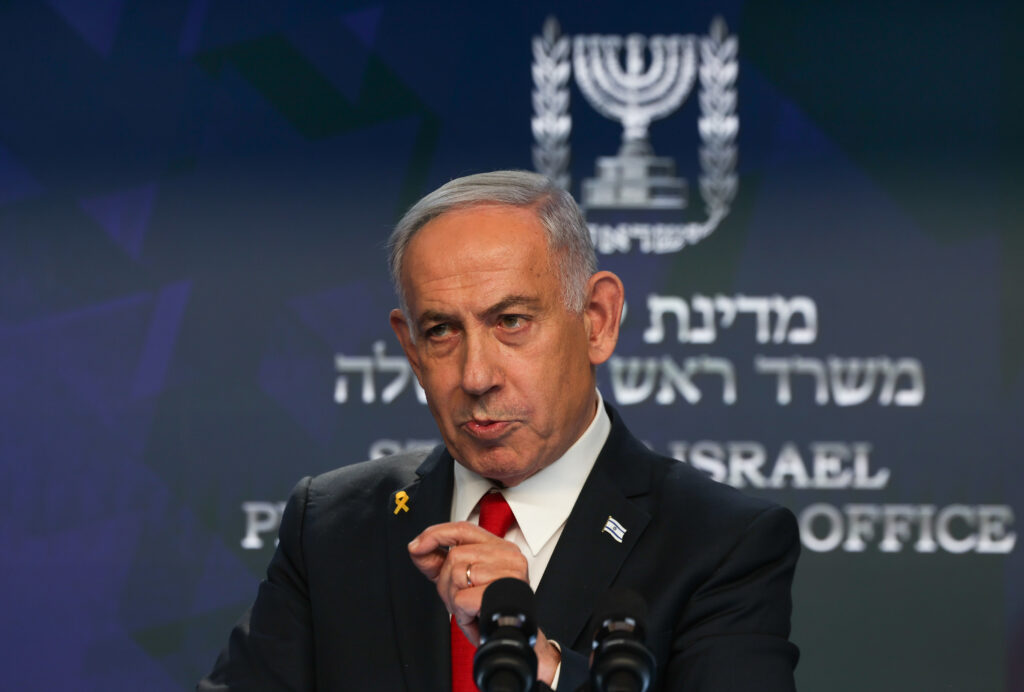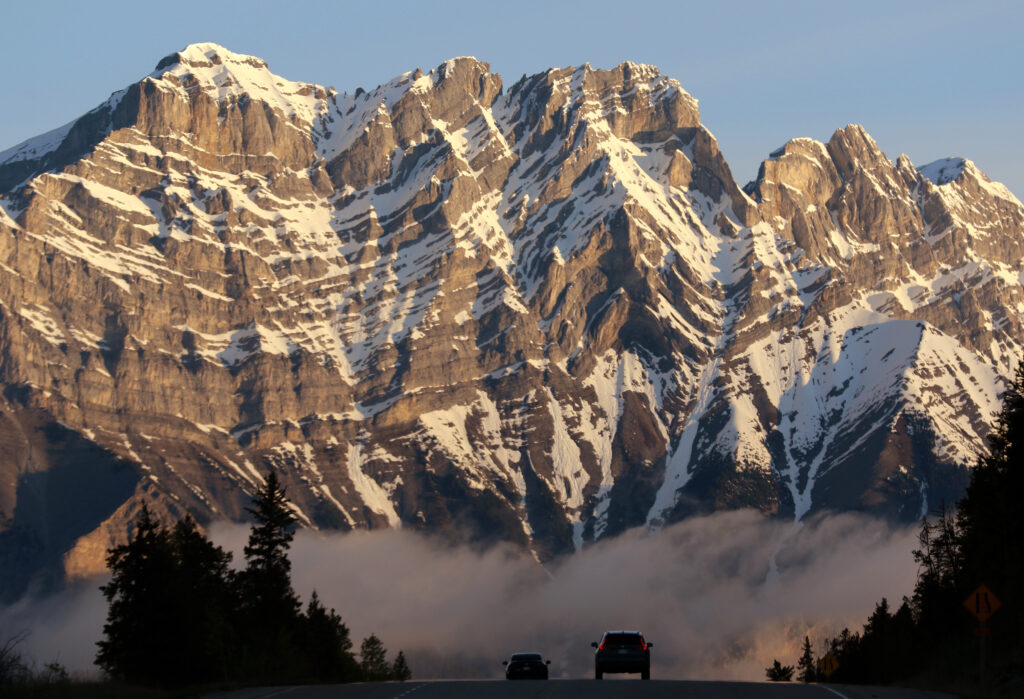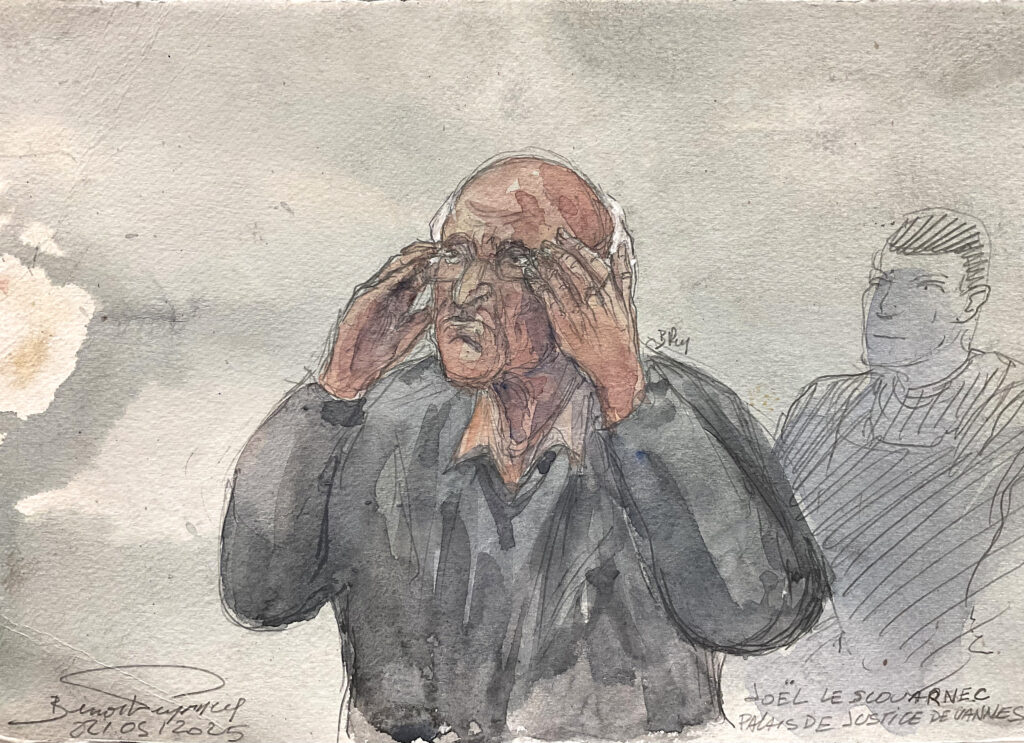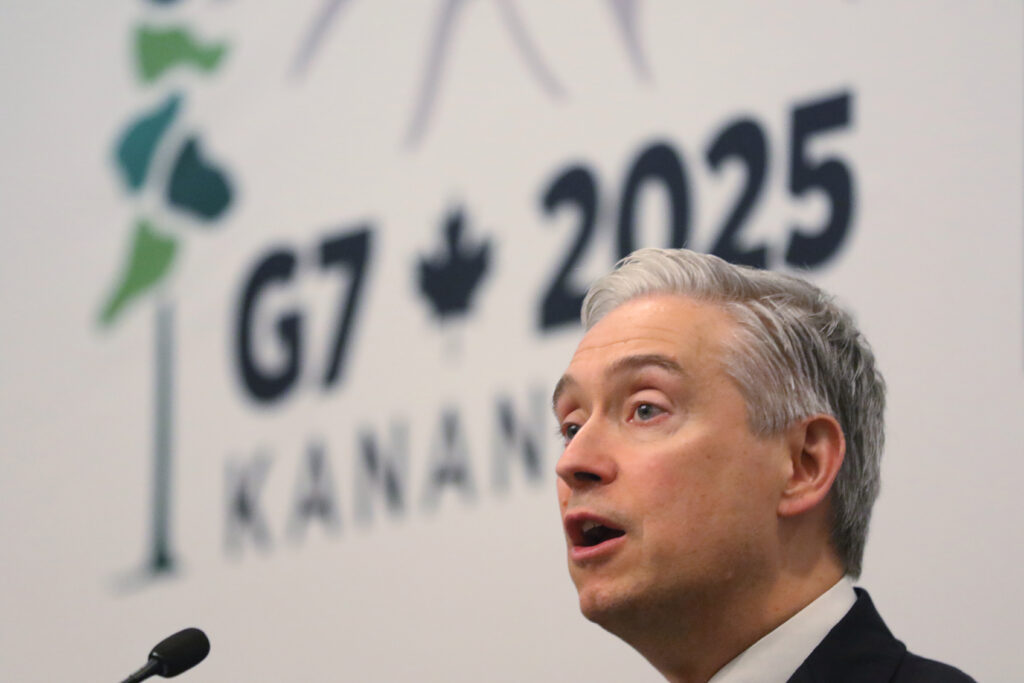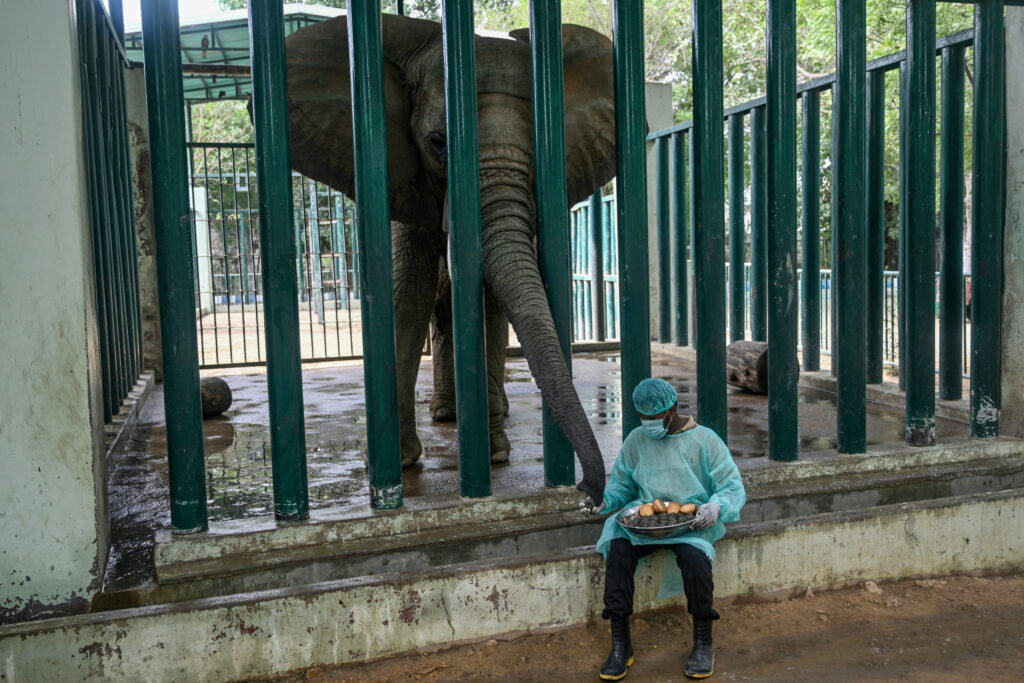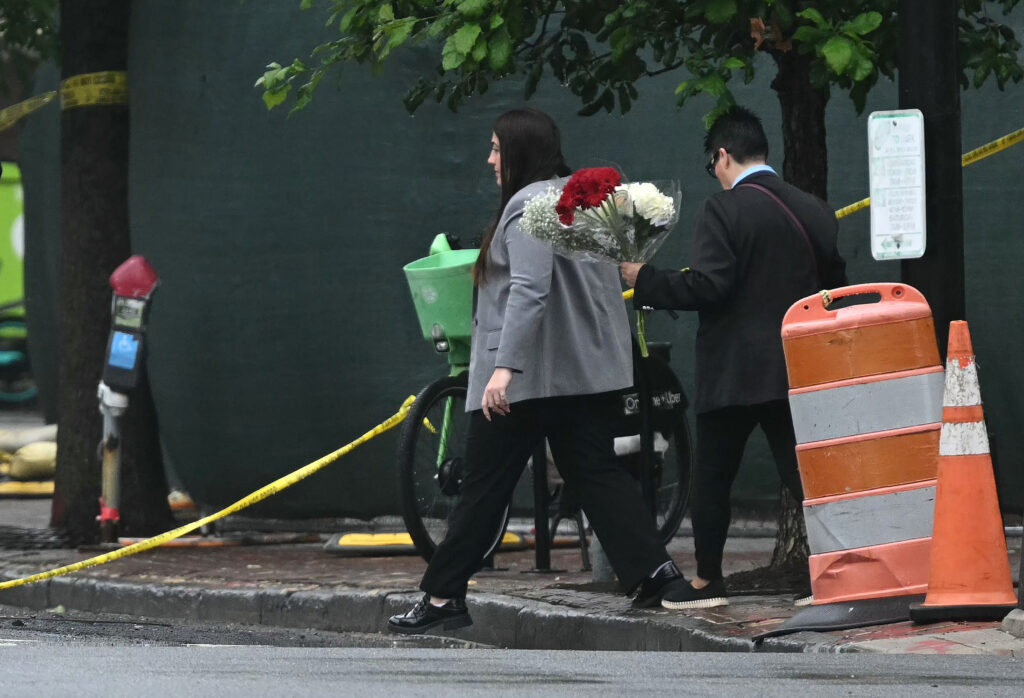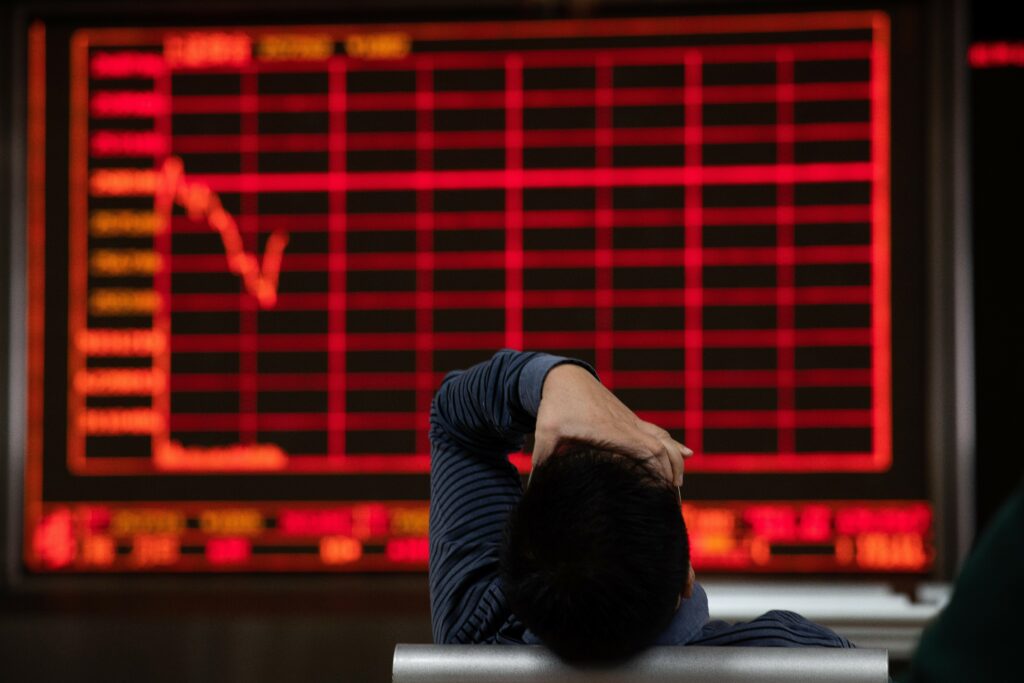Les taxis obtiennent une réunion samedi au ministère des Transport en présence de François Bayrou
Les taxis ont obtenu une réunion samedi au ministère des Transports en présence du Premier ministre, après une quatrième journée de mobilisation jeudi au cours de laquelle ils ont manifesté contre une nouvelle convention régissant le transport de patients mais aussi contre la concurrence des VTC.François Bayrou “ouvrira” cette réunion avec les représentants des taxis, a annoncé son entourage jeudi soir.Il s’agira “d’échanger” avec la profession mobilisée depuis lundi, a-t-on précisé de même source. La réunion est organisée par le ministère des Transports.”Je pense qu’ils ont constaté la détermination des taxis”, a déclaré Rachid Boudjema, le président de l’Union Nationale des Taxis Ensemble, sur France Info.Jeudi, 1.700 taxis se sont mobilisés dans l’Hexagone dont 960 à Paris, selon la préfecture.A Pau (Pyrénées-Atlantiques), la ville de François Bayrou devenue l’un des centres de la mobilisation, des centaines de taxis selon leurs représentants, 100 selon la police, se sont mobilisés.- “Geler” pour le PS -L’intersyndicale des taxis a entamé lundi une mobilisation massive pour protester contre un projet de nouvelle tarification de l’Assurance maladie sur les transports de malades par des chauffeurs de taxi conventionnés. Approuvée le 16 mai par le gouvernement dans un arrêté, elle doit entrer en vigueur le 1er octobre.L’objectif est de contrôler la croissance des dépenses de transport sanitaire, qui ont atteint 6,74 milliards d’euros en 2024, dont 3,07 milliards pour les taxis conventionnés (avec un bond de 45% depuis 2019).Mais ces trajets vers les hôpitaux ou cabinets médicaux représentent la majorité du chiffre d’affaires de nombreux chauffeurs, surtout dans les petites villes.Dans une interview au Parisien, Thomas Fatôme, le directeur général de l’Assurance maladie, a assuré que “la très grande majorité des taxis seront gagnants avec ce nouveau modèle, car il s’appuie sur une logique de transporter davantage de patients”.”On veut construire un modèle +vertueux+ avec les taxis : économiquement pertinent pour eux et soutenable pour l’Assurance Maladie”, a-t-il ajouté en estimant “essentiel, avant sa mise en œuvre, d’expliquer en détail cette nouvelle convention et de rassurer sur les points qui auraient été mal compris”.A Pau, des taxis ont rencontré Olivier Faure, patron des députés PS, dans la ville pour dédicacer son dernier livre.”Je souhaite qu’on puisse geler cette convention, qui n’est pas d’ailleurs entrée en vigueur. Ca suppose que d’ici là, il y ait une vraie discussion”, a-t-il déclaré sur BFMTV à l’issue de la rencontre.Dans les Bouches-du-Rhône, plus de 300 taxis étaient mobilisés selon la préfecture de police.Ils bloquaient à nouveau une des principales artères du centre-ville de Marseille, rejoints par des taxis des Alpes-Maritimes, du Var ou encore plus loin des Hautes-Alpes.A Paris, 650 taxis venus de toute la France ont bloqué le boulevard Raspail, près du ministère des Transports, selon la police. Un barrage filtrant a aussi été mis en place à l’entrée de l’aéroport Charles-de-Gaulle, avant qu’une cinquantaine de taxis ne partent en opération escargot. D’autres ont ralenti la circulation aux abords du parc Disneyland Paris.- “Plus le choix” -Des chauffeurs marseillais se disaient jeudi prêts à poursuivre le mouvement autant de temps qu’il faudra malgré les pertes de chiffre d’affaires, qu’ils estiment entre 1.000 et 2.600 euros sur l’échelle d’une semaine.”Maintenant, on n’a plus le choix. On est tous ensemble. Moi, je serai là jusqu’au bout”, a lancé à l’AFP Thibault Lafontaine, vice-président de l’Union des taxis du 83 (Var).”On a des exemples assez poignants de gens qu’on transporte qui vous expliquent qu’ils ont un hôpital à 20 km, mais qu’il ne peut pas les soigner”, a-t-il expliqué. “Donc les gens font 150 km. Et donc c’est pour ça que ça a augmenté. Si ça a augmenté, c’est parce que la population vieillit, la population est plus malade et on a détruit le système de santé”.Les taxis marseillais ont prévu de distribuer des tracts vendredi devant des hôpitaux. A Paris, ils se sont donné comme objectif de bloquer les gares et de ralentir plusieurs boulevards.Le climat s’est tendu à plusieurs reprises avec les forces de l’ordre mais aussi avec les conducteurs de voitures de transport avec chauffeur (VTC).De nombreux taxis manifestent en effet contre la concurrence des VTC, coordonnés par des plateformes comme Uber. Le ministère des Transports a proposé mercredi un contrôle renforcé des VTC. Le syndicat de VTC Union-Indépendants a appelé de son côté à “l’apaisement”.
